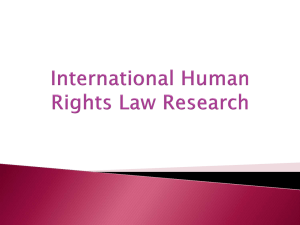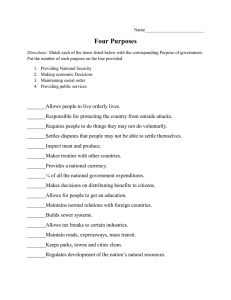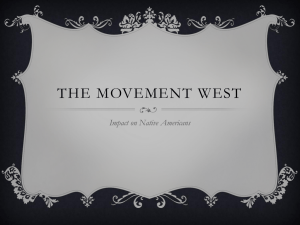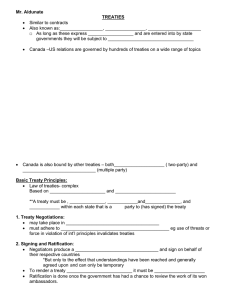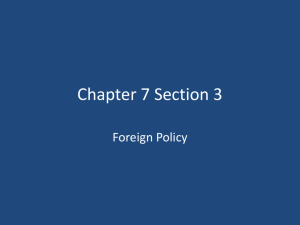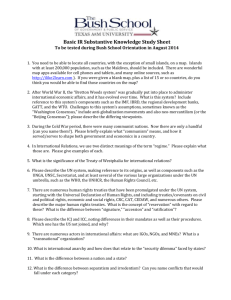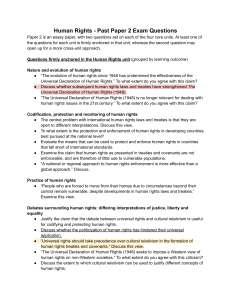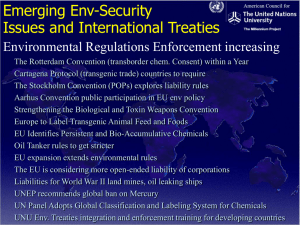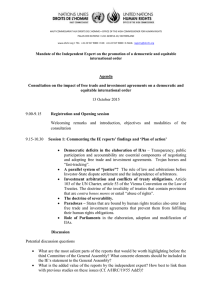International law (IL)
advertisement
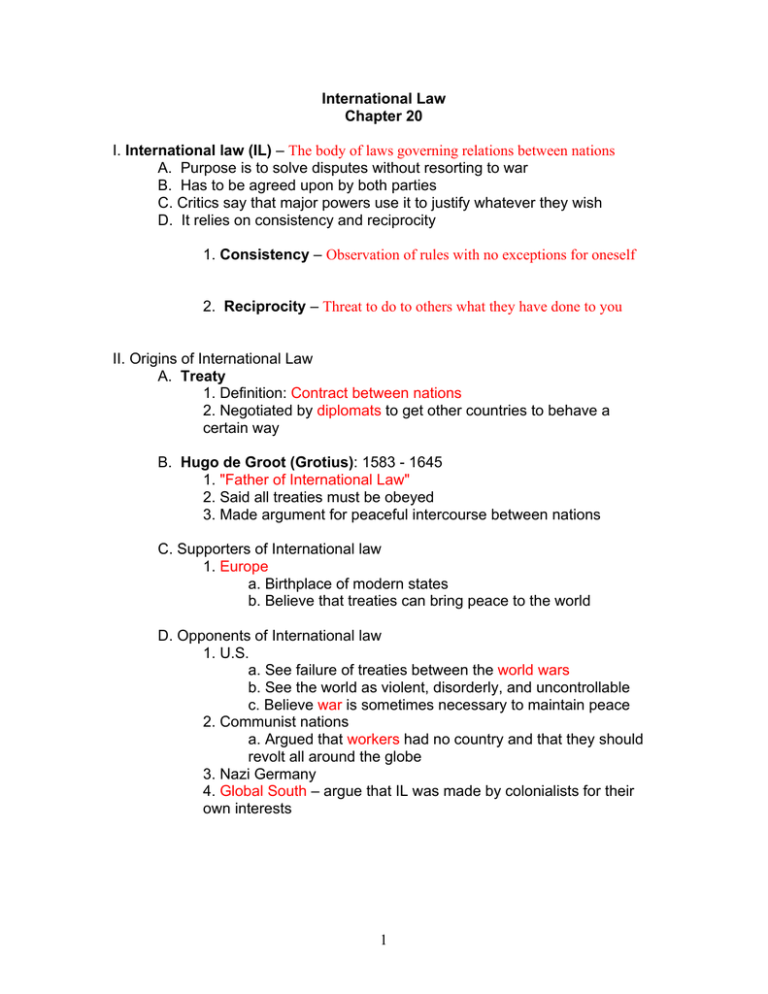
International Law Chapter 20 I. International law (IL) – The body of laws governing relations between nations A. Purpose is to solve disputes without resorting to war B. Has to be agreed upon by both parties C. Critics say that major powers use it to justify whatever they wish D. It relies on consistency and reciprocity 1. Consistency – Observation of rules with no exceptions for oneself 2. Reciprocity – Threat to do to others what they have done to you II. Origins of International Law A. Treaty 1. Definition: Contract between nations 2. Negotiated by diplomats to get other countries to behave a certain way B. Hugo de Groot (Grotius): 1583 - 1645 1. "Father of International Law" 2. Said all treaties must be obeyed 3. Made argument for peaceful intercourse between nations C. Supporters of International law 1. Europe a. Birthplace of modern states b. Believe that treaties can bring peace to the world D. Opponents of International law 1. U.S. a. See failure of treaties between the world wars b. See the world as violent, disorderly, and uncontrollable c. Believe war is sometimes necessary to maintain peace 2. Communist nations a. Argued that workers had no country and that they should revolt all around the globe 3. Nazi Germany 4. Global South – argue that IL was made by colonialists for their own interests 1 III. Components of international law A. Commands 1. Oblige states to behave in particular ways 2. Example: Diplomatic immunity 3. Must be imposed by the states themselves since there is no supergovernment to enforce it. 4. Commands can appear in treaties or executive agreements commitments of less importance than treaties, but made by the president. B. Sanctions 1. Penalties for violating international law 2. Ex: tribunals for war crimes criminals C. Where can nations take their cases against other states? 1. World Court 2. Both parties must agree D. Why sign a treaty then if you can be punished? 1. Each nation gets benefits too (ex. Lessen risk of war, stop arms races, establish markets, allow extradition) 2. To not be a party to the treaty means you don’t get the benefits IV. Recognition A. The acknowledgement of the existence of another state and its government. B. Necessary in order to allow participation in international law (i.e. sign treaties) C. Gives states certain rights (i.e. self-defense) D. 2 types 1. De facto – “In fact”; simplest form, often informal, without embassies 2. De jure – “In law”; higher form, formal and with embassies V. Examples of international law at work A. UN Declaration of Human Rights B. Geneva Convention – Modern rules for behavior in war; gave rights to refugees, prisoners, and wounded. C. Settling border disputes between states D. Banning poison gas, exploding bullets, and shotguns in war 2
